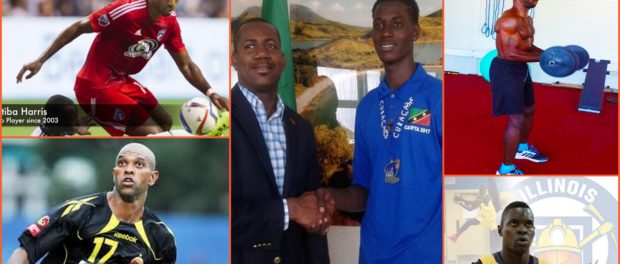“A National Sports Authority: For A More Healthy, Productive & Peaceful Nation”
Get our headlines on WHATSAPP: 1) Save +1 (869) 665-9125 to your contact list. 2) Send a WhatsApp message to that number so we can add you 3) Send your news, photos/videos to times.caribbean@gmail.com


Dr Patrick Martin
by Dr. Patrick Martin, MD,
There are solutions. Regular physical activity is a vital ingredient of a healthy lifestyle. Organized sports offer viable alternatives to gun worship. And, at a minimum, a professionally-run national sports infrastructure promises adequate and predictable funding of sports. It can also bring communities together to support local teams as well as international teams that have an impact around the world. People are also able to go onto websites like fun88, for example, to place some bets on their favorite team or player so they can potentially win some money from it.
According to the United Nation’s Office On Sport For Development And Peace: “Sport is a powerful tool to strengthen social ties and networks, and to promote ideals of peace, fraternity, solidarity, non-violence, tolerance and justice”. Such a tool is needed in St. Kitts and Nevis to support excellence in organized and competitive sports, and to champion physical activity as a powerful ingredient of good spiritual, mental, social and physical health.
The case for serious sports administration gained traction in 1986 when one million dollars were invested in the preparation of our first Olympic team. A government allocation of such magnitude should warrant a policy and a planning focal point. In the late 1990s, external consultants were assisting with the formation of a national sports council. The obvious lack of follow-through is probably due to the belief that the National Olympic Committee and a government sports department are sufficient. Both have important roles but the business of sports requires a purpose-built corporate entity.
The scope of work of a national sports authority includes the promotion of physical activity, talent identification and nurturing, fund raising, defining the schedule of “must host” and “must go to” events, provisioning of representative teams, facilities marketing and facilities managemenSuch a body can be the central server of a well-organized sports industry in the Federation whose contribution to GDP is measured as gate revenues, sponsorship, media rights and merchandizing.
The sports market in developed countries is worth 1% GDP (USA 3%) per annum. Preliminaries calculations for St. Kitts and Nevis suggest a market value of around 0.2% GDP (ECD 2-3M). Investment can be scaled up subject to government’s convening of the vital partners to determine the roadmap towards the 1% GDP target. Potential funding buckets include corporate sponsorship (linked to tax-relief), government subvention, tax earmarks, contributions from governing bodies, advertising, merchandizing, facility-user fees, rental of concession spaces and corporate boxes, gate receipts, and media rights.
The importance of sports to the promotion of tourism and investment cannot be overstated. Representation at major sports events are marketing opportunities as Jamaica and The Bahamas consistently demonstrate. When cameras capture the sights of smart march past attire, and an athlete or team in the finals or medal ceremony, the duration of the coverage is worth many millions of advertising dollars. In St. Kitts and Nevis, such opportunity will be more assured if the current and future pool of talent in the youth and junior ranks of all sports is adequately supported – scientifically, technically and financially.
Sports is a youth engagement activity that is too big to ignore. At stake are personal esteem, national pride and identity, social cohesion and societal peace. Participating young people are more likely to remain on straight and narrow paths. Young people were, and are St. Kitts and Nevis’ world-class cricketers, netballers, footballers, and track and field athletes. Golf, lawn tennis, taekwondo, basketball and volleyball promise similar successes. Further, as volunteers, young people contribute immensely to the unrivalled reputation both islands have in event management. The legacy includes the 1990 Texaco OECS Track & Field Championships, 2007 Cricket World Cup, 2008 CARIFTA Games, CPL Finals, and the 2017 cross-channel swim which attracted a record number of professional athletes. Every year, thousands attend well-choreographed primary and high school athletic championships. Crowd support is such that the Nevis Inter-Primary has long outgrown E.T. Willet Park, and the paltry six hundred pavilion seats at Kim Collins Stadium sell out before tickets are printed.
The “fierce urgency of now” for St. Kitts and Nevis is to build on the existing asset foundation and develop a national sports industry. High levels of physical activity, team-spiritedness and event management bode well for a fit, healthy, competitive, resilient and productive nation. Sports stimulates economic activity in productive sectors such as hospitality, construction, transport, creative arts and retail trade. Central government expenditure for national security, criminal justice and correctional facilities should decrease.
A national sports authority is possible, desirable and essential. A formal launch in January 2018 is doable; in tandem with opening of the Lester Blackett Stadium at Long Point.
Leave a comment
You must be logged in to post a comment.